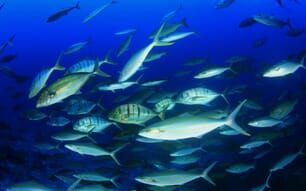Harvesters should be aware of potential food safety issues associated with bivalve shellfish (clams, oysters, scallops, mussels and cockles), other molluscan shellfish (whelks and periwinkles) and the hepatopancreas (soft green substance) of crab, and verify that the shellfish they harvest are from an open fishing area.
It is important to only harvest bivalve shellfish in areas open to fishing and to handle them properly to minimise the risk of food-borne illnesses. Bivalve shellfish should only be harvested at the waters edge when the tide is going out, and shellfish should be iced, refrigerated or frozen immediately after harvest or purchase, and during transport, until they're ready to be eaten.
For consumers, it is important to purchase shellfish only from trusted retailers and restaurants who can confirm the source of the shellfish, and that they were harvested from an open area. These animals are highly sensitive to the quality of their marine environments. Because they feed by filtering microscopic organisms from the water, harmful bacteria, viruses and biotoxins from their surroundings can build up in their tissues and may cause illness in people who consume affected shellfish.
The Canadian Food Inspection Agency, Environment Canada and Fisheries and Oceans Canada work collaboratively to regularly test fishing areas and shellfish to minimise potential risks, and to close fishing areas when risks are identified. Cooking bivalve shellfish does not destroy many of the toxins that may be present when shellfish are harvested from a closed area.
A tidal waters sport fishing licence is required to harvest shellfish recreationally. Harvesters must comply with sport fishing regulations related to shellfish harvesting, including respecting fishing area closures. It is illegal to harvest shellfish from a closed area.
Information on shellfish fishing area closures is updated frequently and is available from the following sources:
A toll free, 24-hour recorded information line: 1-866-431-3474 Fisheries and Oceans Canadas shellfish contamination webpage Local Fisheries and Oceans Canada offices (call during regular business hours)
Eating shellfish with high levels of certain toxins can lead to serious or potentially fatal illnesses. To learn more about the illnesses associated with fish and seafood, visit the Canadian Food Inspection website.



